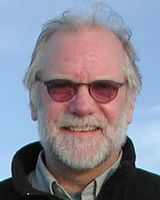Daniel Stevenson
| PersonType | Category:Professors |
|---|---|
| FirstName / namefirst | Daniel |
| LastName / namelast | Stevenson |
| MainNamePhon | Daniel Stevenson |
| bio | I have been interested for some time in the sites and economies of practice that mediated religious life in Middle Period China (10th–14th centuries), particularly as they applied to persons who identified themselves (or others) as “Buddhist.” This interest arises from the conviction that religious subjects and their traditions are not static and monolithically constituted entities, but disparate works in progress, the estimations of which are ceaselessly negotiated in relation to a diversity of shifting idioms, obligations, and historical contingencies. To me the key question becomes one of processes and agencies of cultural practice, and that question in turn implies networks, that is to say, the sites and channels through which cultural data move, locate, and come to be collectively embodied.
I am working on several projects at the moment, all of which focus on Song (960–1279) and Yuan period China (1279–1368). (Source Accessed October 22, 2019) |
| YearBirth | 1952/12/15 |
| languageprimary | English |
| languagetranslation | Chinese |
| languagetarget | English |
| affiliation | University of Kansas |
| currentworks | “Serving the Buddhas in Song Dynasty China” (book manuscript)
This manuscript explores formations and fissures of Buddhist religious life (monastic as well as vernacular) through attention to such key sites and media of Buddhist monastic and vernacular culture as institutional setting, education and textual practice, ritual performance, material and visual repertoire, and narrative network. In a recently published book chapter on “Buddhist Ritual in the Song” I touched upon resonances between Buddhist rituals for intercession with local gods, restless dead, ancestors and animals that were popular during this period and the logics of religious action and efficacy that we find embedded in vernacular narratives of exorcism, healing, aversion of disaster, and miraculous response. That interest, which I continue to explore in this book manuscript, extends also to resonance with equivalent Daoist rites of intercession, such as the Yellow Register fast, and even popular novels and drama of religious bent (e.g., Mulian’s deliverance of his mother from hell). If the rich sensorial settings of ritual performance, drama, and narrative were principal mediums for the formation of the vernacular religious imagination in Song China, as would seem to have been the case, what can integrated study of them tell us about religious identity and difference in traditional China. “The ‘Tiantai Four Books’ (天台四書): Protocols of Buddhist Learning in Late Song and Yuan China” (major article) This article explores curricular programs, protocols of learning (textual practice), and discourses of authoritative knowledge in public Buddhist monasteries of the Tiantai School during the Southern Song and Yuan (ca. 12th-14th centuries). The project draws on period-specific archival materials, prefaces and colophons to Song and Yuan imprints of key Tiantai texts, monastic codes, monastery inscriptions, and epitaphs for Buddhist clergy—materials that not only document learning practices during the period in question but also served as active agents for their dissemination. This project features an annotated translation of Siming Zhili’s (960-1028) Notes on Essential Points of the Ten Gates of Nonduality (Shibuermen zhiyao chao十不二門指要鈔, which is prefaced by a series of chapters that reconstruct curricular programs evident in Tiantai public monasteries during Southern Song and Yuan Dynasty China. Drawing on such in situ materials as prefaces and colophons to Song and Yuan imprints of key Tiantai texts, monastic codes, monastery inscriptions, and epitaphs for Buddhist clergy, the project seeks to identify what people actually read and studied in Tiantai monasteries, the sequence and manner in which such texts were studied, how widely such curricula circulated (along with the institutional networks that facilitated it), and the forms of religious knowledge and authority they created. The institutional focus is confined mainly to the Tiantai public monastery circuit in the lower Yangzi basin. As the term ‘four books’ (sishu) clearly demands, I also make a point of examining resonances with shifts in ‘Learning of the Way’ (Daoxue) Confucian educational discourse and curricula that occur during precisely the same period. “The Life/Lives of a Lotus Sūtra Imprint in Southern Song China” (article in progress) This article explores the multifaceted life of a copy of the Lotus Sūtra that was printed by book carvers from Jiangxi, obtained by the Tiantai monk Deqiu from a bookshop in Hangzhou, used in Deqiu’s daily devotions, and ultimately deposited by him in a stupa reliquary at the Huiyun Monastery in Jiaxing (Xiuzhou). The life of that text, as an animate entity in the eyes of Deqiu and his patrons, is revealed in a series of calligraphic diary annotations and event-specific prayers that Deqiu composed and appended to the printed scripture. As a holy object, what did that text demand of him? How did he use and relationally engage it, and to what ends? |
| phduniversity | Columbia University, 1987 |
| education |
Four Forms of Samādhi and Late North-South Dynasties, Sui, and Early T'ang Buddhist Devotionalism."
|
| cv | https://religiousstudies.ku.edu/sites/religiousstudies.ku.edu/files/docs/cv/Stevenson%20CV%202011.pdf |
| IsInGyatsa | No |
| Other wikis |
If the page does not yet exist on the remote wiki, you can paste the tag |
Full Name
Daniel Stevenson

